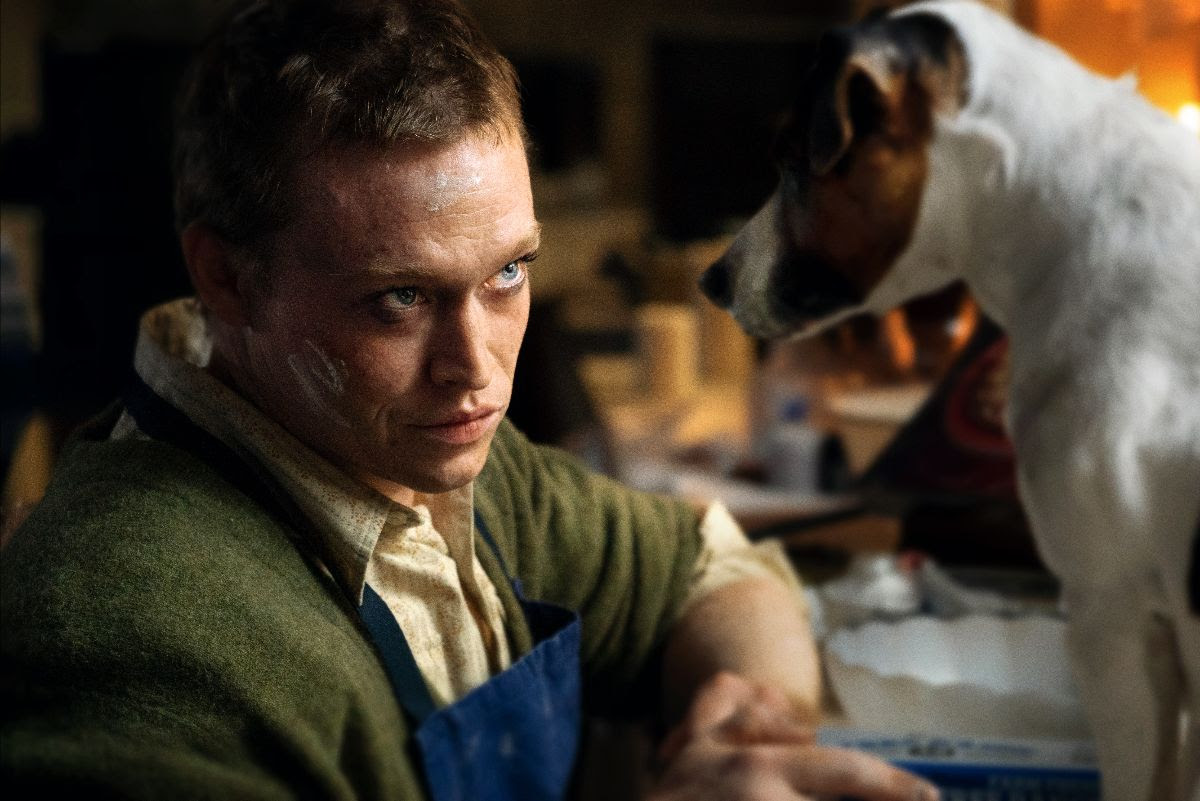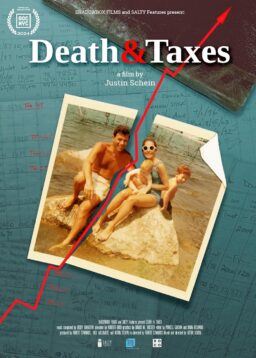At the Venice Biennale, Mostra di Cinema (that’s film festival to you), the evening’s big premieres customarily play for the press on the morning of at the site’s biggest houses, the Grande and Darsenna. They switch off. Today, Luc Besson’s “Dogman” was at the Grande at 8:30 p.m. and the Darsenna at 11 p.m., while Michael Mann’s “Ferrari” was at the Darsenna at 8:30 p.m. and the Grande at 11 p.m. I can’t tell you why I chose to see “Dogman” first and “Ferrari” second; the houses are nearly equivalent in quality and size. But the fact that my 8:30 p.m. screening of “Dogman” was four-fifths full as opposed to fully packed spoke to the eagerness with which the press corps has been anticipating “Ferrari” and wanting to get their shots at it fastest, not to strain for a play on words or anything.
But “Dogman” was applauded very warmly by its not-small crowd. The movie has a genuine crowd-pleasing quality. Although Besson hasn’t worked with animals much in his long, roller-coaster film career, this movie seems quintessentially Bessonian. It’s not just a question of who else could come up with a protagonist who not only has a magical, and at times lethal, psychic connection to our canine friends but also can do a mean Edith Piaf performance tribute despite partial paralysis below the waist. It’s also a question of who else could get such a movie made in such high style. No one, really.
I did not enjoy the movie as much as my colleagues seemed to. It’s often ridiculous in what I think are unintentional ways.
The action is set in Newark. Douglas, the title Dogman, played by Caleb Landry Jones and pouring his life story out to an empathetic police psychiatrist played well by Jojo T. Gibbs, recalls a horrific childhood. His dad raised fighting dogs and became so agitated by Douglas’ love of the animals that he permanently caged the kid with the dogs. The father and older brother (the latter of whom has a risible bowl haircut) are portrayed as such cornpone yokels that when Douglas escapes, it’s a laughable shock to find out he’s been in Newark the whole time. And to ensure the characters register as extra-evil, Besson makes them Jesus-freak evangelicals. And the older brother prays in Latin, which is not how evangelicals, who were at one point in our history famously anti-Catholic, roll. Weird.
Jones is almost the whole show here. His performance is bravura, to say the least, and he pulls the movie back together whenever it’s threatening to turn into “Willard” with pooches instead of rats. While the likes of Besson’s “The Fifth Element” represented a kind of apogee of genre pop art, “Dogman” sometimes struck me as faux-grindhouse schtick. It also mystified me that while “John Wick: Chapter 4” had only that one dog and this movie has ten times that, Besson doesn’t work up all that much “look-at-da-puppy” interest. Maybe it’s diluted by the numbers. But the film moves like crazy—the climax arrives before you know it, and by that time, more than 90 minutes have passed—and while the dog appeal might not be present, Jones’ character drops much science on the purity of the canine soul. This will be the most fun for those who can just go with it.

Now, “Ferrari.” That is a motion picture. While I will always mourn that David Cronenberg never got to make the Ferrari movie he long envisioned, “Red Car,” I can’t complain that Michael Mann has achieved his dream project about the automaker. And almost nobody out here can either. (I did run into one dissenting voice, a confirmed Mann hater—“I just don’t think he’s a director”—on the way out; I think he understands the distinct minority he’s in.) Based on a Brock Yates book, the screenplay is by Troy Kennedy Martin, who also wrote “The Italian Job” (the 1969 original) and died in 2009, in case you’re idly wondering how long some dream projects take to come together. And the screenplay is a real script, so to speak, brimming with dialogue that crackles while avoiding being too on the nose. It’s a movie where the line “I want my gun back” is a sexual turn-on.
Which isn’t surprising in a Mann film, of course. But “Ferrari” is generally in the high-middlebrow mode of “The Insider” or “Ali” more than the genre mode of “Miami Vice” or “Blackhat.” It’s largely a domestic drama with racing and auto manufacturing as the milieu. Yeah, it’s got racing scenes and an absolutely harrowing, mercilessly constructed racing accident climax. But if social media imbecile and “Oppenheimer” complainer Logan Paul sees the movie, he’ll likely bitch that it’s just Ferrari and his wife and mistress and drivers talking all the time.
The movie, except for a couple of flashbacks, contains the ethos of Enzo Ferrari, the creator of the iconic car company, within the action of a couple of months, leading to the catastrophic 1957 Mille Miglia Italian road race, which nevertheless also yielded Ferrari a kind of victory. As Ferrari takes on a new driver, he contends with the prospect of his company going bankrupt and the pressure from the other woman in his life to accept the son he bore out of wedlock (and with whom he conducts the better part of his domestic life) as officially his own. Ferrari’s issues are compounded by his wife, Laura, who owns half the company and is not a contented spouse. She fires the aforementioned gun at him early on. She knows he’s a womanizer (but doesn’t know he’s devoted to the mother of his second son) but insists he gets back to the house “before the maid has served coffee.” And this particular morning, he did not.
Laura, played with ever-growing strength by the amazing Penelope Cruz, is not a stereotypical woman scorned. She embodies heartbreak—her son with Ferrari died the prior year. This loss has killed Enzo, too. They both visit the family mausoleum every day—separately—and speak to the child. The couple lives with loss. Money, yes, but also drivers. You can’t truly appreciate automobiles unless you know everything they are and can be. Streamlined, elegant, impossibly fast-moving marvels of engineering; they are that. They are also death machines. Mann gets that, and his movie gets that, and it always makes you wonder what fuels the people who create and drive them. And at times, it offers satisfying answers that raise a few more questions.
Adam Driver is magisterial, playing a man some years older than himself. The character of Ferrari, in some ways, resembles Lermontov, the obsessive dance impresario in the classic “The Red Shoes.” Like Lermontov, Ferrari is a man of inherent elegance. Even the slight paunch that Driver carries for his character seems like a thing of substance. But Cruz almost outdoes him in terms of subtlety and passion.












